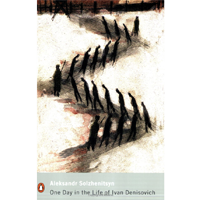|
Literature about GULAG, Russia and the Soviet Union
|
This list only contains literature in English. It does not pretend to be comprehensive. Books will be added to the list as I hear of them.
If you have read an informative book about the Gulag or Kolyma, please let me know by email so that it can be added to the list. I would appriciate references in the format used on this page. Images should be 200x200 pixels in PNG format with transparent background.
Go directly to the first letter in the authors name:

Subject: Samizdat (underground) about life in forced exile
This both a humorous and serious novel about every day life in the Soviet Union after Stalin. Amalrik uses his theoretical rights to a free life and that brings him into forced exile in Siberia (North of Krasnoyarsk). He later wrote this novel as Samizdat and had it published in the West. That sent him to Kolyma and later he was expelled from his own country. He died in a car accident in 1980 in Spain.
Publisher: Harvest/HBJ, 1971
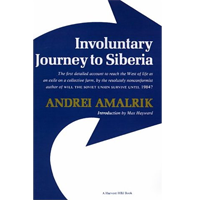
Pulitzer prize book about the history of the Gulag
The references in this book are numerous and the critics found it outstanding. Highly recommendable!
Publisher: Doubleday, 2003
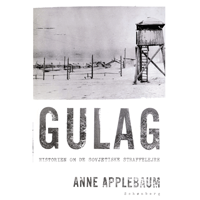
Subject: The history of the Spanish Civil War
British traditions of history books are brilliant. Antony Beevor's book is splendid and it is difficult to put it away when you have begun reading it. The book tells the history of the Civil War where the two dictators, Stalin and Hitler, tried to force their systems upon Spain through their support of each part of the war. It shows how the NKVD cleanses out opponents in the Republic and how the democrats looses their illusions.
Publisher: Penguin (paperback), 1983 (hardcover)
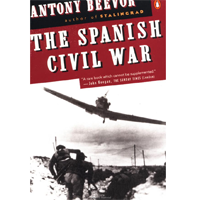
Subject: Double biography of the two worst dictators
A brilliant book and Bullock was rightfully granted a lordship by parliament after this book. Bullock's book shows striking parallels between the two tyrants but also their many differences.
Publisher: Vintage books, 1993
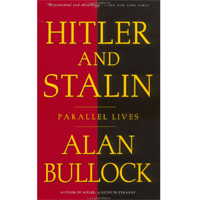
Subject: The crimes of communism commited around the World
This was a very controversial book when it was published. Jewish organisations called it "revisional" because it for the first time compared Auschwitz directly with GULAG and many people on the left wing of the political spectre denouced it as propagandistic. Statistics doesn't match the newest research regaring the Soviet Union, but apart from that, it is a very interesting book that shows how atroities were repeated again and again where communism was introduced.
Publisher: Harvard University Press, 1999
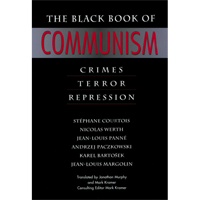
Subject: Biography
A book about the life of Winston Churchill is destined to be very intersting and entertaining. Martin Gilbert fully complies providing us with a very good read. Churchill always mistrusted the Soviets and fought them during most of his life apart from the time during the War. However also then he collected material about the Soviet camps and sent it to America. It was Churchill who invented the expresion "the Iron Curtain" in his famous speach at Fulton University.
Publisher: Pimlico, 1993
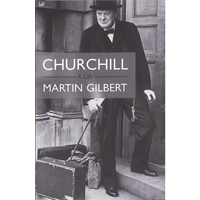
Subject: Personal memoriors
A very touching story about a woman who is arrested and charged for all kinds of non-existant crimes and how she goes through the prison and transport system to Kolyma. She was lucky to survive because she was transferred to the early prisoner hospital in Berlitz just south of Yagodnoe where she had Varlam Shalamov and Ellinor Lipper as collegues. It is a wonderful book but Ginzburg does stress the cleansing of the party and the Great Terror. Not much about the "Kulaks".
Publisher: Harvest/HBJ
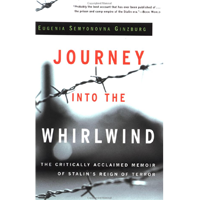
Subject: Biography of Beria, the last leader of Stalin's NKVD
A very good book covering the life of one of the world's worst criminals. The irony is that Beria in the end was executed after being accused of the only crime he never committed. He murdered hundres of thousands, raped small girls and murdered some of their parents. Amy Knight's theories about Beria's intentions to reform the Soviet Union after Stalin's death are interesting but she states a little too dogmatically.
Publisher: Princeton University Press, 1993
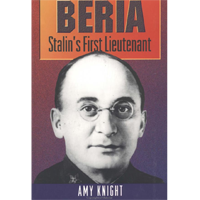
Subject: Based on a United Nations report from 1948
Many supporters of the Soviet system claim that they didn't know. Well, here is a report from 1948, published in 1951, about the camp system. There are many factual mistakes but the general concept of the camps was correct. So, yes, they may not have known, but did they TRY to find out? A question that may not have much relevance today but this book seems more and more relevant at a time when the USA talks about "progress on human rights" with their allies in Central Asia.
Publisher: Int. Conf. of Free Trade Unions, 1951
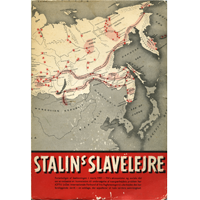
Subject: Fiction based on personal experiences
A "social realism" style novel based on Ostrovsky's own life. It claims to show the wonders of the new society and the reds fight a just cause. It is surely a propaganda book and it tries to distort and misrepresent many of the atrocities committed during the Russian Civil War and during the dekulakisation. Having said that I must also say that as literature it is a wonderful read.
Publisher: Baduga Publishers, 1937
Where to buy: Only second hand, ASIN: B000VWE09Y
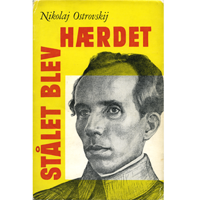
Subject: Non-fiction about Russia with Putin in charge
A Danish expert said in a debate about democracy in Russia, that, after all, people were not sent to the camps. No, answered a journalist based in Moscow, they are getting shot in front of their own homes! That is exactly what happend to Politkovskaya on 7 October 2006. Read the book and judge for yourself who had the greatest interest in this murder that was committed on President Putin's birthday in a country where symbolism is everything. Highly recommended.
Publisher: Metropolitan Books, 2004
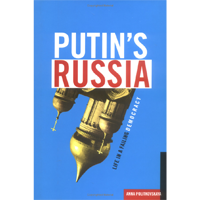
Subject: Non-fiction memoriors from forced exile in Siberia
The story of an ordinary Jewish family in Lithuania sent into forced exile in Siberia in the cold of Yakutia. It is a touching story about how their world is turned upside down and how they are expelled to a cruel region of the globe but also about how they keep their dignity and kindness through all the difficulties. Other families were far worse off like those who were sent to the camps but this was of no help for the exiles. They managed to get to Denmark in 1957.
Publisher: University of Alabama Press
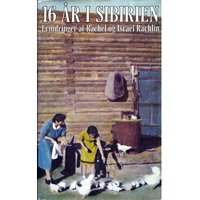
Emne: Short stories from the life in the Kolyma camps
Varlam Shalamov get close to the individual prisoner and guard in Kolyma in his tales. When reading the stories you will be amazed and think: "Can it really be, that people can be so cruel?" Yes, unfortunately they can. The more research I have done the moreI can confirm these stories. The tales are not documentary but they are based on real experiences. This is the single most important book about Kolyma.
Publisher: Penguin Books, 1980
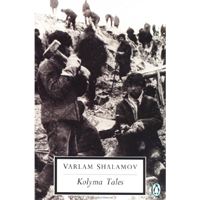
Subject: Fiction based on own experiences after the GULAG
I have not read all Solzhenitsyn's books but this is the best of those I have. It is a wonderful read full of comic incidents, harsh irony and a wonderful gallery of characters. The story takes place in the middle of the 1950's when the main character (Solzhenitsyn himself) comes back from the camps and needs medical treatment for his cancer. A brilliant description of everyday life in the Soviet Union of that time.
Publisher: Vintage, 1968
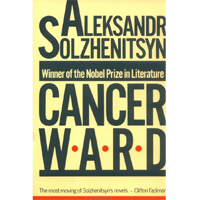
Subject: The history of the GULAG 1918-56
One of the most famous novels of the twentieth century published shortly after he got the Nobel prize for literature. This book is very different from his other works. It is written by a very angry and very bitter man and condems many people by name while they were still alive. Normally, I would not accept this, but in this case I am in complete agreement with the author. Solzhenitsyn's wrath is just and fair! If you want to know about the Gulag, this is the book of all books!
Publisher: Harper Perennial Modern Classics, 1973
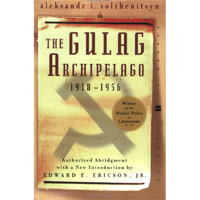
Subject: Fiction based on own experiences from the GULAG
One of the most famous novels of the twentieth century and a real breakthrough in the Soviet Union when Solzhenitsyn was given permission to publish it by Nikita Krushchev. The book tells the story of on ordinary day in one of the camps where Ivan (Solzhenitsyn himself) was a mason. It is not a bad day, neither is it a good one. Just a day like all others in the camp. A wonderful book.
Publisher: Farrar, Straus and Giroux, 1962
